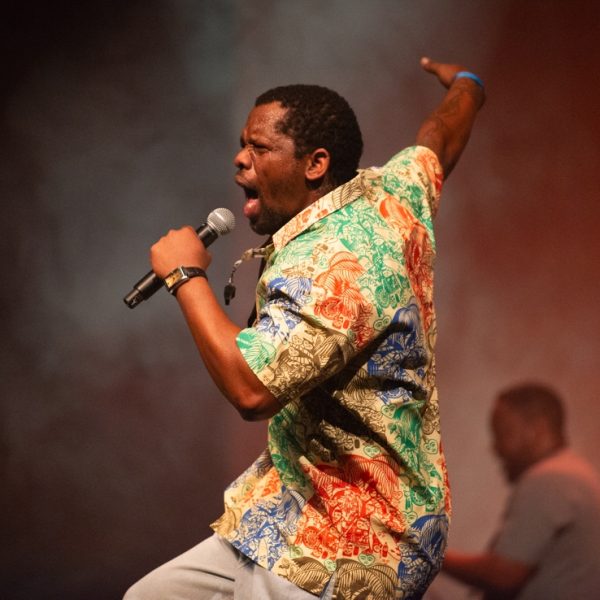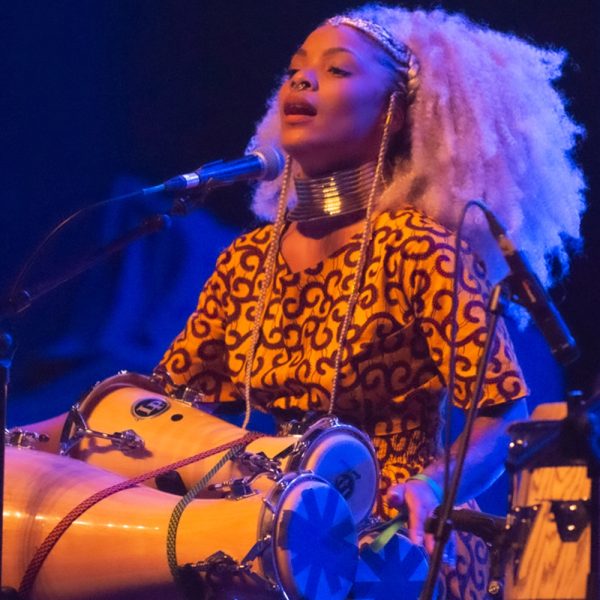Banner and thumbnail images by Jacob Crawfurd.
The end of October brings autumn leaves, cooler weather, Halloween, and, of course, the Worldwide Music Expo (aka WOMEX). The floating convention takes place in a different city each year and this year it was held in Manchester, England. The city, which began as a Roman fort dubbed Mancunium, and later became what is considered the “first modern industrial city,” has a striking skyline where 19th and 21st century buildings live side by side. But perhaps, for our ears, the city is best known for its musical contributions to 20th century rock music. From the Hollies, Herman's Hermits and Wayne Fontana in the early 1960's, through 10cc, Thin Lizzy, Joy Division, the Smiths and the Buzzcocks in the '70s, and beyond to the Happy Mondays, the Stone Roses, the Verve and Oasis, Manchester remains a mecca for music of the highest caliber. And so it was a well chosen locale for the 30th anniversary edition of WOMEX.
This year’s WOMEX brought together 2,850 music professionals, including 290 performing artists, from over 45 countries. The event featured 61 artist showcases across seven stages, 18 music-based documentaries, and 88 conference speakers and mentors. The trade fair, featuring over 738 exhibiting companies with 246 stands, represented a panoply of countries promoting their home-grown artists, artist management companies, record labels, and more.
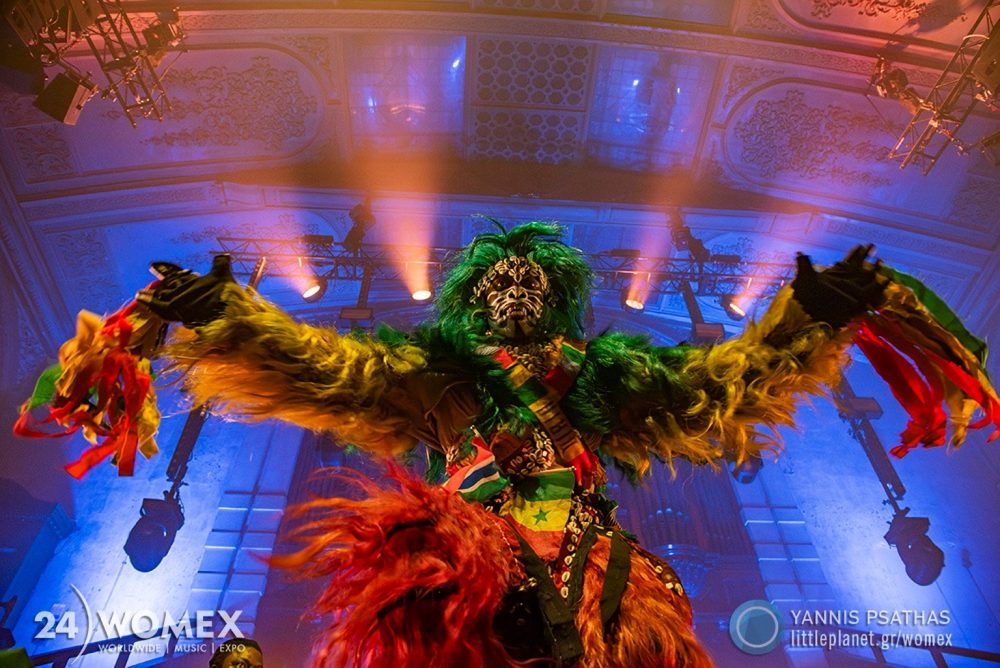
While artists that fall into our Afropop Worldwide wheelhouse of music from across the African disapora had featured showcases, we were also treated to standout musicians from across Europe – from Sweden to Cyprus, the Middle East, the Far East, New Zealand and even Canada. Our only complaint is that we wished the showcases were staggered, as it's always difficult to catch part of one act and then race to another venue to catch the last song or two of another. So one has to make choices and thus could only see so many performances each evening.
Highlights for us, in no particular order other than by day, were as following:
On Thursday, we went in a bit wary of a newly-organized edition of the seminal Senegalese group Orchestra Baobab. But we needn't have worried as this mostly younger generation of artists stayed true to the band's 50 year legacy, sounding fresh and vital while honoring its legendary history. And not to belittle the group in any way, but one has to think it's like going to see the Benny Goodman Orchestra today. No Goodman, no Gene Krupa. You're going for the songs and the arrangements, not as much about the musicians themselves, even though they are quite competent.
We had fun watching Mitsune, a quartet of artists from Japan, Australia, and Greece who are based in Berlin, and who are somewhat difficult to define. They have two shamisen players (a traditional Japanese instrument similar to the banjo), percussion and bass, and as best as we can be described as sounding like a mash-up of traditional Japanese music with surf punk. Their costumes and stage presence made for an infectious set. We then caught a few songs from Christina Clara, a Portuguese singer of mostly fado, but as one would expect, there are also musical influences from the former colonies of Brazil and Cape Verde. But the absolute highlight for us that night was Kefaya and Elaha Soroor.
Kefaya began as a duo of musicians based in England, featuring Italian guitarist Giuliano Modarelli, who took the 2017 Songlines award for Best Newcomer with their debut release Radio International. That release launched the band on a global journey collaborating with artists from Palestine to India. Since then, they've partnered with Afghani singer (and actress) Elaha Soroor who has given the group a fuller sound and a more focused direction as Soroor brings with her traditional songs from her highly marginalized ethnic minority group, the Hazara. Similar to some other artists we saw this year, Soroor is on a mission to not just raise awareness of her people, but also to preserve melodies that are being lost.
Moving to Friday, we were quite taken by a daytime showcase with the Malawi duo of Yobu Malinga (on a homemade, one-string babatone) and Yosefe Kalekeni (on guitar and foot drum) known as Madalitso Band. This duo began at the turn of the millennium, busking in the streets and shopping malls of Lilongwe. They recorded their first album in 2009, but it was a 2017 appearance at the Sauti Za Busara Festival in Zanzibar where they quickly found an international audience and have released two more albums since. We'll be featuring an interview with the duo shortly.
Friday evening began with a pleasant set from Les Mamans du Congo + Rrobin. Les Mamans was a project initiated by Gladys Samba who saw how lullabies and children's songs were fading away from the culture in the Republic of Congo. But, as Samba explained to us, these songs have hidden or metaphorical meaning about their history as well as messages of social and ethical behavior. Her idea was to make these songs relevant to a young generation, which she has achieved by collaborating with French producer Rrobin who adds hip-hop beats and electronic arrangements to these traditional songs. We had a chance to speak with Gladys and Rrobin before their showcase which we'll post shortly.
Next up was a group we first caught pre-pandemic at Nuits d'Afrique and took note of. Votia come from Reunion Island, the small island Madagascar and Mauritius in the Indian Ocean, renowned for its many musical exports. Votia is a family outfit led by singer Marie-Claude Lambert-Philéas, who comes from a well-recognized musical family. The group includes her husband, her children, cousins and some friends. As noted, we were quite taken by them in 2018 in Montreal, and enjoyed them even more this year at WOMEX. We also had a chance to chat with Marie-Claude and will have an interview up here soon.
Following Votia, we very much enjoyed Kamakan, formed by Iraqi singer Mehdi Saki. Then, we had to race between two venues to catch some of a favorite of ours, BIM (Benin International Musical) an ensemble we also saw this summer at Nuits d'AFrique in Montreal, and Haitian musician, singer, dancer and vodou priest Erol Josué. His performance is a real stage show and journey he takes you on. And while Banning did a long interview with talented Josué in 2023, we also had a brief chat with him we'll be featuring here soon.
Saturday night began with a very impressive performance by Guatemalan Sara Curruchich. We were really unprepared to the power and intensity of seeing her live on stage. Her passion comes from her mission to bring awareness to the plight of the marginalized indigenous in her country. By the end of her showcase, the audience was absolutely rapturous. It was noted at the introduction that she is first Guatemalan artist to showcase at WOMEX.
We followed that with another similarly named and similarly intense and impressive performance from Sahra Halgan from the unrecognized country of Somaliland. Halgan began her singing career during the civil war in her country, using her voice to ease the pain of wounded soldiers at night due to a lack of painkillers at the hospital. She eventually fled the country to France where she worked menial jobs but also formed a band around herself, taking traditional songs and adding Afrobeat, desert blues and Ethio-jazz elements. Eventually, she moved back to her homeland and opened up a cultural center that supports women and children artists. We had a lovely conversation with her which will appear shortly.
Then we had another race between venues, first to see Palestinian-German singer/songwriter Rasha Nahas and then griot balafon artist N'famady Kouyaté. Born into a family of balafon musicians in Conakry, Congo, love took Kouyaté to Wales, where an encounter connected him to Super Furry Animals frontman Gruff Rhys, who not only brought him to play on his next album, but took him on tour as his opening act. Both showcases were just wonderful and epitomized all that we love about WOMEX. We sat down for a chat with N'famady which we'll post soon.
We ended Saturday night with Adédèji, a Lagos-born but Athens-based guitarist who draws from a large bag of musical influences including '80s jazz, funk and soul, Afrobeat, James Brown, and some George Benson guitar work. His 10-piece band had the crowd boogying down from start to finish. A perfect end to the showcases of WOMEX 2024.
Finally, Sunday morning was the time to present various WOMEX awards, and concluding with 2024 Artist Award to 88-year old Brazilian composer and legendary artist Hermeto Pascoal. Pascoal has influenced artists for over a half-century, and while he was originally expected to appear in person to received the award, his health prevented him from coming. But nevertheless, his band, led by one of his son's did appear and had attendees dancing in the aisles.
Again, we could not catch all the showcases, and other Afropop type acts we missed included: Tanzanian-born, South African rapper Stogie T (aka Tumi Molekane), Puerto Rican salsa stars El Labertino del Coco, the pan-African ensemble Balimaya Project and multi-disciplined artist from Brazil, Jonathan Ferr. But there’s no reason you shouldn’t run a web search and explore these artists, as well.
And that's a wrap. WOMEX 2025 is to take place in Tampere, Finland, as always as fall descends in late October.
Related Audio Programs
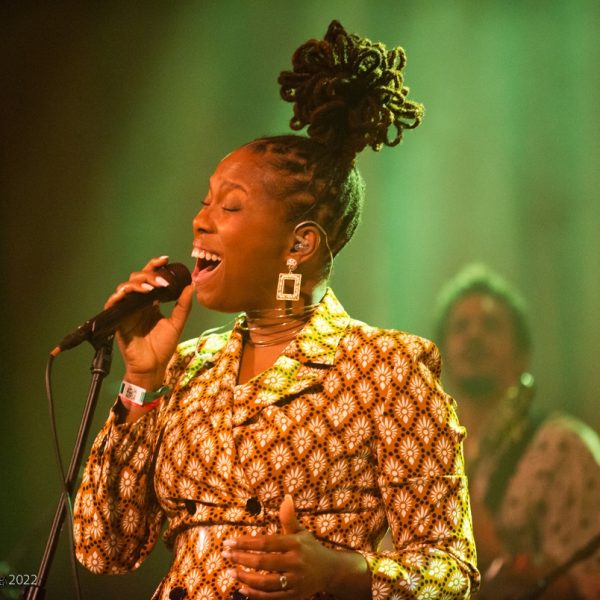
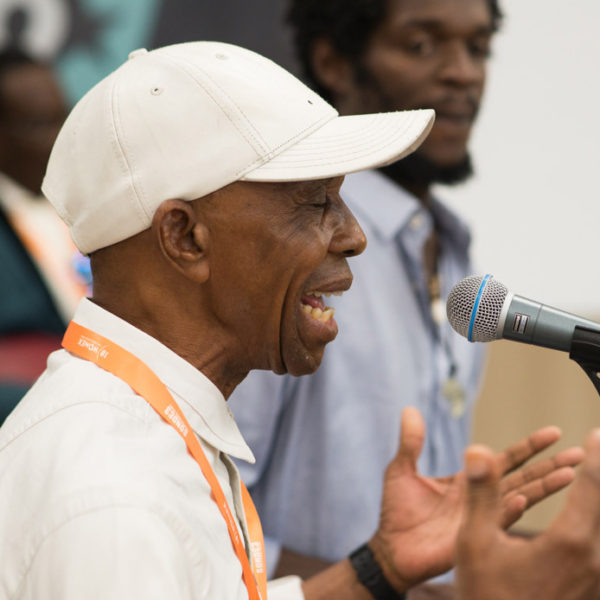
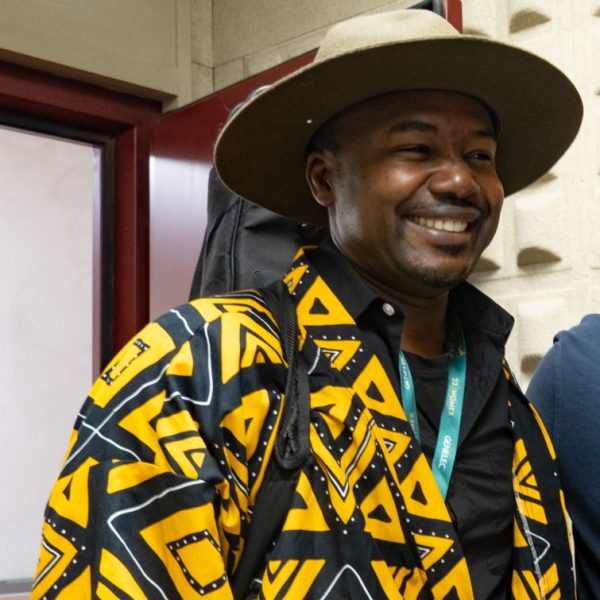
Related Articles
